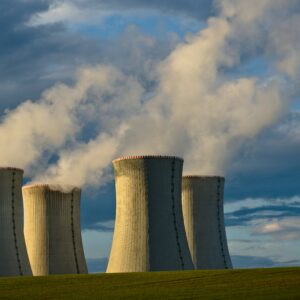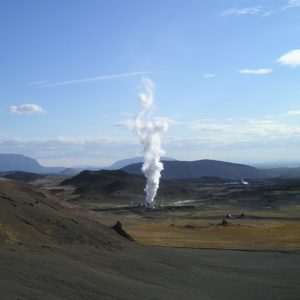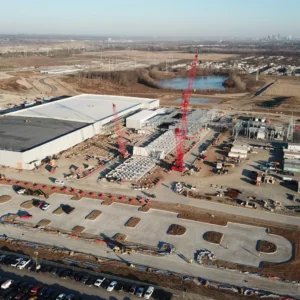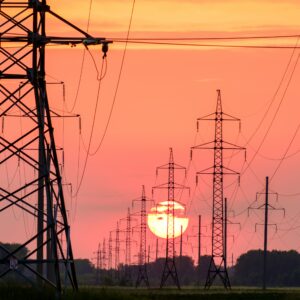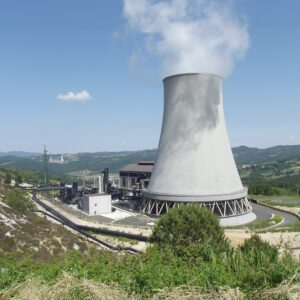Houston-based private equity firm Pelican Energy Partners has raised a $450 million fund to invest in nuclear energy services and equipment companies. Pelican had aimed to raise $300 million for Pelican Energy Partners Base Zero LP and had imposed an initial “hard cap” of $400 million. Investors include endowments, foundations, family offices, and pension plans....
Project InnerSpace Launches GeoMap™ India, Revealing Substantial Prospects for Geothermal Power, Heating, and Cooling Development Across the Country
Project InnerSpace has launched GeoMap™ India, highlighting the enormous potential for untapped geothermal energy to become a crucial part of India’s clean energy mix as it seeks to spur economic growth and development by increasing energy supply. GeoMap™ is a pioneering geothermal exploration tool focused on expanding the adoption of clean, always-on geothermal energy worldwide by bringing together millions...
Is AI a Threat or Opportunity for a Cleaner, Abundant Energy Future?
You may have heard the term “Luddite,” but never heard of Ned Ludd. To be fair to them, he might not have existed at all. But the movement named for him certainly did! In the early 1800’s, Luddites fought to stop the expansion of technology in Great Britain. At that time, high technology meant knitting...
U.S. regulators raise questions about siting data centers at power plants
Costs and reliability concerns related to the burgeoning trend of building energy-intensive data centers next to U.S. power plants were the focus of a technical conference held on Friday by the Federal Energy Regulatory Commission. As the technology industry races to deploy data centers for technologies like generative artificial intelligence, quickly accessing the massive amounts...
Texas Grid Chief Says Big Tech Must Pay More for Power Upgrades
Technology giants developing big artificial intelligence data centers in Texas will need to pay more for electricity infrastructure upgrades to prevent those costs from burdening households and other businesses, according to the state grid operator’s chief. Affordable power is “at the core” of the conversation that the Electric Reliability Council of Texas, the grid operator,...
Google signs deal with nuclear company as data center power demand surges
Google said Monday that it will purchase power from small modular reactor developer Kairos Power, as tech companies increasingly turn to nuclear power as a way to fulfill the growing energy demands from data centers. The tech giant said it will purchase power from a fleet of SMRs made by Kairos Power. Google said purchasing from multiple SMRs...
Google goes nuclear in new deal to power AI
Google announced a deal on Monday to purchase energy from small nuclear reactors that the startup Kairos Power plans to start bringing online in the U.S. by 2030. Why it matters: It’s Google’s first nuclear foray as the tech giant — and its peers — hunt for zero-carbon power to fuel energy-thirsty AI data centers. Read...
Google, Microsoft, and Nucor announce a new initiative to aggregate demand to scale the adoption of advanced clean electricity technologies
"The companies will initially focus on proving out the demand aggregation and procurement model through advanced technology pilot projects in the United States. The companies will pilot a project delivery framework focused on three enabling levers for early commercial projects: signing offtake agreements for technologies that are still early on the cost curve, bringing a clear customer voice to policymakers and other stakeholders on broader long-term ecosystem improvements, and developing new enabling tariff structures in partnership with energy providers and utilities."
Tech Giants Are Looking to Power the Cloud with Nuclear Energy
Recognizing the need for reliable power to meet demand and clean energy to meet carbon reduction goals, companies are turning to nuclear power.
A Startup’s Technology Can Help Solve Lithium-Ion Batteries’ Fire Problem
"San Jose, California-based Anthro’s differentiator is that its electrolyte is a drop-in technology that wouldn’t require battery manufacturers to make any changes to their process, according to Mackanic. Despite these advantages, the startup’s current electrolyte production costs are about twice that of producing conventional liquid electrolytes, due in part to the cost of its materials. He expects to be able to get that down to a 10% to 20% premium at commercial scale."
